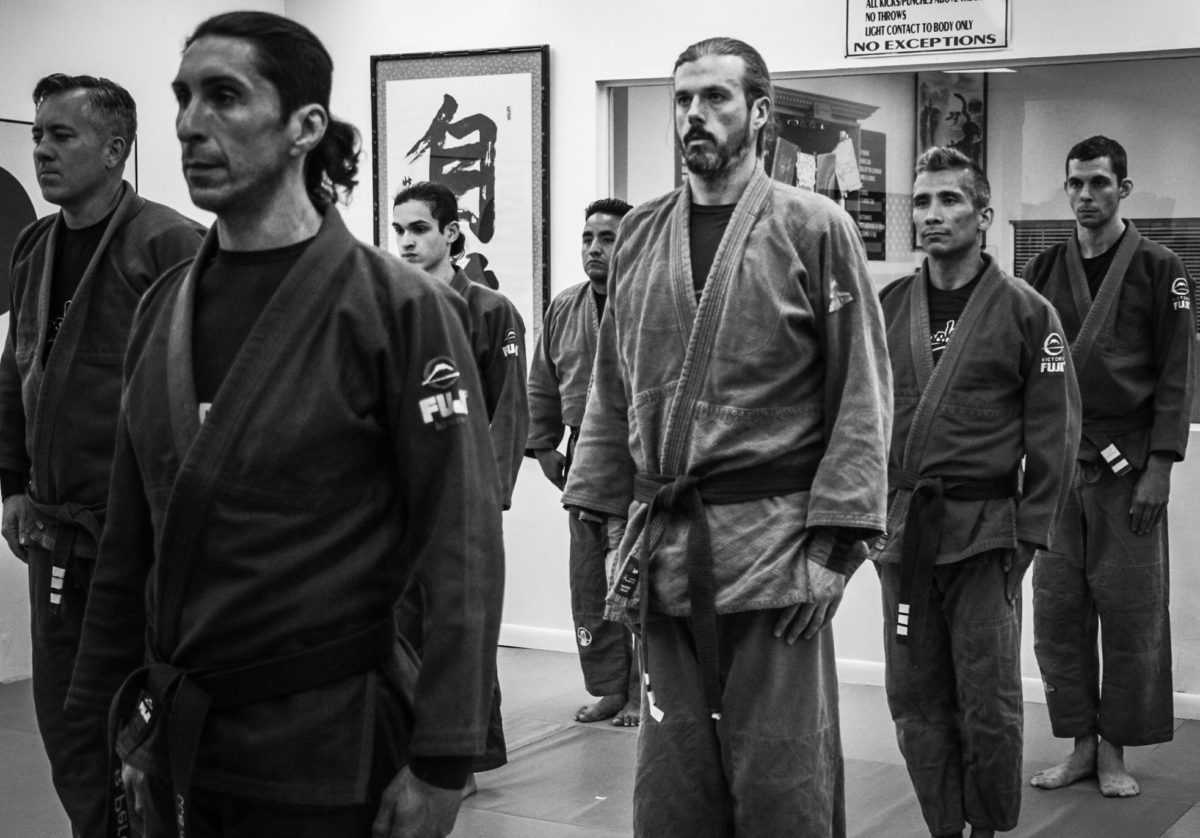
There is a power that comes with staying mentally engaged in what we’re doing. In the dojo, when the class works together in this frame of mind, the distance we can go together is really something. When we stay present it gives us much more sensitivity moment by moment. This is critical because life typically doesn’t come at us the way we want. It comes at us the way it comes at us, and we need to deal with it appropriately in real time in order to maximize success.
As an example, my teacher will sometimes say, “you’re too stiff with me, you’ve got to relax.” Then the very next day I get yelled at for being too familiar and too comfortable. And I want to say, “look, you told me to do it this way”. But I don’t do that because that’s not the lesson for me. The lesson is not to be correct. The lesson is to be present and engaged, to see and feel and hear all of the signals. Then I can learn and improve and change my perspective without bringing in my ego or my agenda.
This is a very important martial arts point. It can be hard as the newer student to stay present in this way. But one way we practice it is in our relationship to partner work on the mat. So if you’re the junior student, it’s considered poor character to correct the senior. If someone’s putting you in danger in the training, then that’s another story. But typically we don’t want to correct our seniors because it solidifies our position rather than keeping it open.
If I were to say to my own teacher, “But you said last time we talked that you wanted me to be more familiar,” I might be right but I wouldn’t be serving the relationship in a longterm way. I’d be missing an opportunity to adjust, to engage and let something go. I choose to listen and learn rather than inserting my ego – my own personal point of view – into the conversation. I just let it be, as it is in that moment.
This is very significant for us as students. We can practice a mindfulness here. If you’re the senior, take care not to over correct the junior and provide a bad example. And if you’re the junior, take care not to correct, period. Helping if the senior asks is a whole separate issue, but trying to teach someone who’s your senior is probably not the best etiquette. And it’s not about serving the senior’s ego. It’s about you, the junior, letting it go.
It can change how we look at the training and our experience on the mat. In the dressing room after training, sometimes my junior would talk about how they “almost caught me” in the training with a submission or a sweep. I would think, “Are you kidding me? Is that the extent, the scope, of your training? That you almost beat me? Who cares?” It grates on the relationship. It’s more about shoring things up than about staying open to what else could be.
So staying present and mentally engaged means to work together for maximum benefit. Don’t dog the relationship. Honor it. If someone is working on something, let them work. If you have a good day, don’t put it in someone’s face. It’s not necessary. We can protect their relationship at all costs, and in doing so, serve both others and ourselves.
For more about our larger project of collaborative Jiu-Jitsu and martial arts training, visit the Brooklyn Brazilian Jiu-Jitsu (Brooklyn BJJ) website here.